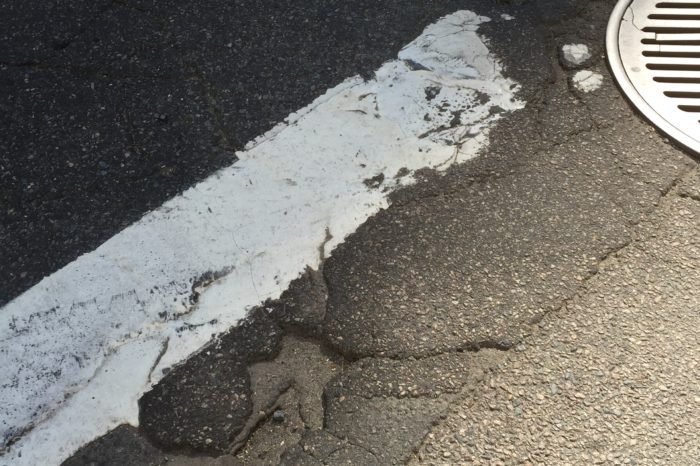Problems with Potholes in Boston
Boston has a pothole problem. Or, more accurately, Boston has a transparency problem regarding pothole repairs. Since the historic snowfalls last winter, potholes proliferated around town, endangering those walking, driving, or cycling the roads.
The city is tasked with fixing each pothole quickly. Every pothole has an associated file on record, which, when filled and fixed, should be marked as “closed” by Boston public works officials.
Citizens are encouraged to be part of the process and report potholes as they find them. The website and app CitizensConnect allows the public to snap a picture of a pothole they see (or other concerns) and report the location to city officials. The technology is designed to connect the city to its people in real-time so reported issues are tracked up to the point of resolution. The goal is maintaining an open and transparent process. The city’s aim is to fix potholes within 2 days, as stated on their website. However, only 60% of potholes are repaired within that timeframe; the other 40% is repaired in an average of 12 days. A few take even longer—up to months.
But there has been criticism, and rightfully so.
The New England Center for Investigative Reporting (NECIR) discovered that the pothole repairing process doesn’t isn’t as transparent as it should be. They’ve found that some files for potholes are marked “resolved” or “closed” when a simple safety cone has been placed on top of the sinkhole. Or some potholes are shoddily filled, collapsing shortly after the job was completed, creating the illusion of safety and more work later on. NECIR also found that sometimes a pothole is fixed and other nearby potholes go unrepaired— a “direct violation of city protocol.”
According to NECIR, a pothole file can be deemed “closed” when the particular pothole is outside of the direct jurisdiction of the city officials—they’re supposed to refer the case to the correct department, but sometimes fail to do so, resulting in the pothole continuing to the pose a danger while the city officials consider it to be out of their hands. And sometimes a file is marked closed without anyone attending to the problem at all, a simple case of negligence that can pose big problems for those navigating Boston streets.
CitizensConnect is an innovative tool but is only as good as the data reported on it. In light of the NECIR report, the city has a lot more to repair than potholes. Fixing the transparency problem is job one, if officials truly seek active citizen engagement.
Sabrina Chishti is a Transparency Intern at Pioneer Institute from Tufts University majoring in biology and political science.



